This National government came to power on the promise of tax cuts it hadn’t costed out and immediately scrapped an essential infrastructure project ten years in the making with no backup plan because global cost inflation pushed the price into mildly uncomfortable territory. It would be only a matter of weeks, perhaps days, before it became obvious to the financially savvy in the country that this was at best a questionable call, but Nicola Willis and her promise of “second hand toyotas” (that turned out to not exist on the second-hand market) would dominate public discourse for many months more, until even the “uneducated public” couldn’t fail to see what our government were deliberately ignoring: the ferry snap-decision was a snap-mistake.
Only one in four people believe the government were right to axe the iRex ferries
Luxon then proceeded to shit all over the strength of our economy, undermining business and consumer confidence and massively exacerbating the dampening effects of his own tax-cut trade-offs: massive layoffs to our public services, resulting in an insta-freeze effect on local economies, perhaps most starkly seen with the sudden imminent collapse of Wellington’s CBD sector as the city that is made up mostly of public servants lose their jobs and can no longer afford to pay for coffee. Luxon’s solution? Make the non-fired ones pay it!
This exemplar in corporate management was copied from the corporate overlords themselves — Amazon’s CEO who only weeks ago had ordered the same thing of his employees. This tinkering around with the symptoms of an economic crisis will solve nothing, but will add more strain to a strained public workforce, who are primarily already strained because of decisions this government themselves have made. It is the sign of a CEO out of his depth, trying desperately to signal that he is in control while his much-stronger coalition partners run rings around him.
And yet our economists still seem to think these disastrous actions have been taken with good intentions and maybe even knowledgeable economic management, even as it becomes clearer there are no good outcomes from this path forward.
And yet, even though this inevitable economic consequence has been perfectly understandable since National were on the campaign trail promising to make it happen, economists still seem determined to give National the benefit of the doubt:
Yes. Yes they do.
This question in the Conversation by Geoff Betram yesterday perfectly outlines the fiscal cliff National have been driving us towards for the past year. It is one of a flurry of economic articles published at the same time across media that seem to be probing the same worrying question, but none outline the clear influences quite so well in so few words.
It is not a new idea that austerity causes and deepens recessions — it’s been floating around for at least 20 years and was well proven and analysed after the 2008 recession. But despite this hard evidence either hasn’t reached National or they don’t care.
Why? Because they have a vested interest in ignoring it.
The goal of a 40 year neoliberal programme designed to grow the wealth of wealthy New Zealanders, and shrinking government function is the ideological means and the ends of a group of people determined to let the free market reign knowing it will inflate the value of their own holdings. Take Luxon, a multi-millionaire property mogul who dumped all his AirNZ shares into rentals until he could become PM and shift taxation on real estate in his favour. Or Dr Shane Reti and the recent appointment of Lester Levy, who are both deeply invested in private healthcare even as they cut and slash the capacity of the public health system, sending clients and money streaming into their private hospitals and ensuring public funds will need to be diverted into places where the private sector has invested, just to keep on top of the overwhelming demand they will inevitably be unable to keep up with due to deliberate underinvestment. Or Jones, Brown and Bishop, the three ministers in charge of the fast track programme that has approved dozens of projects they have conflicted interest in, despite convoluted attempts to manage it. Or Casey Costello, former tobacco lobbyist who has cut taxes on nicotine products and reversed our incremental smoking ban at the expense of our struggling health system so as to direct profits back towards her former (and probably future) employers. Ditto for Nicole McKee, in charge of firearm reform despite the protests of the Police Association, who seems determined that the sector she lobbied for should make greater profits even if it causes another mass shooting the she already bears considerable responsibility for.
And of course this entire term has been nothing but lies, handwaving, gaslighting, and corporate speak. Maybe that’s why everyone seems so ready to believe Luxon might just not understand the direction in which he’s steering this ship. He’s deliberately giving out that vibe — and those answers when questioned on his decisions and actions (or his lack of them).
But I’m sure this government just don’t know they’re heading us towards an actual economic cliff that will benefit every single one of them.
Like that’s an excuse.




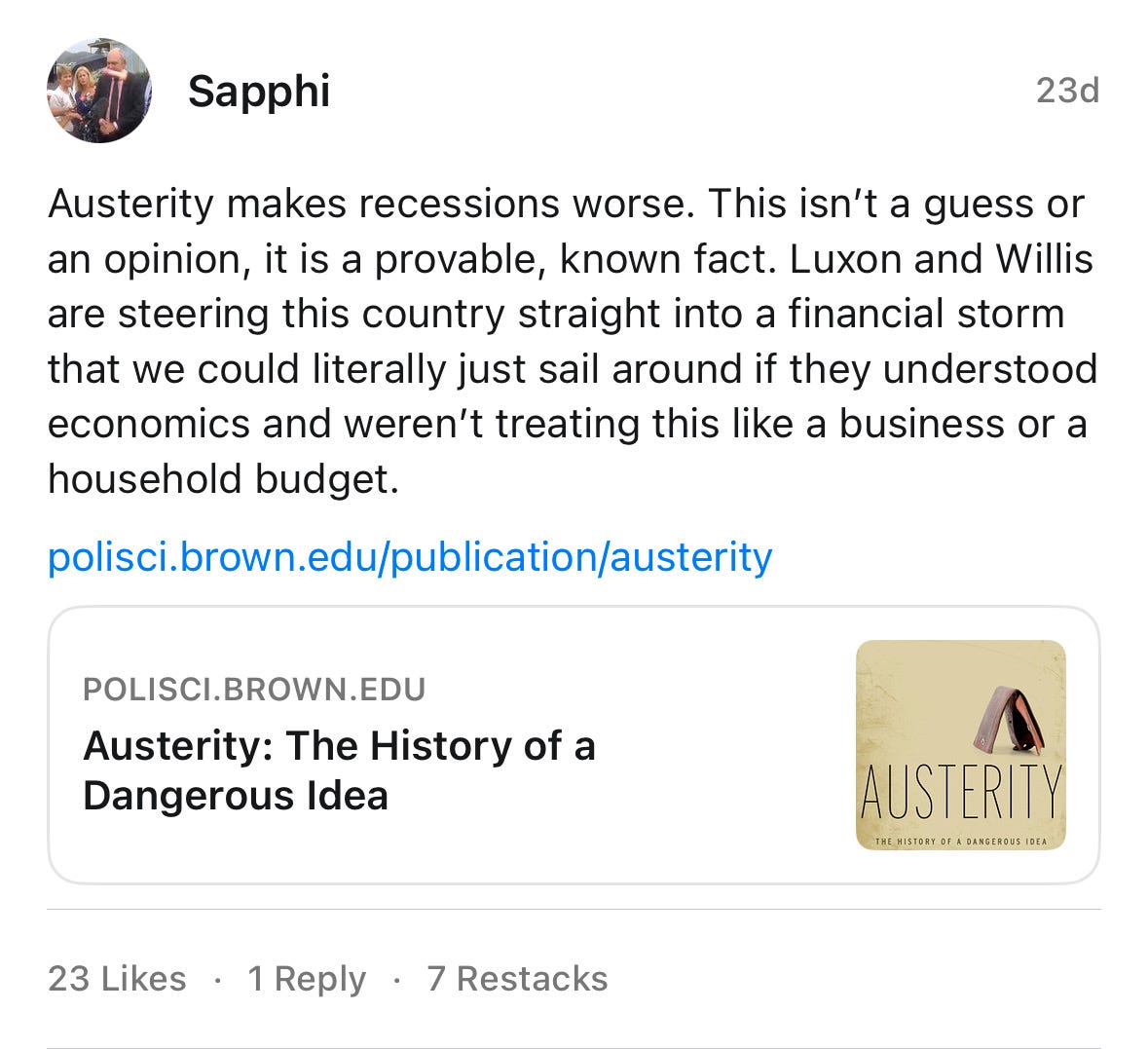

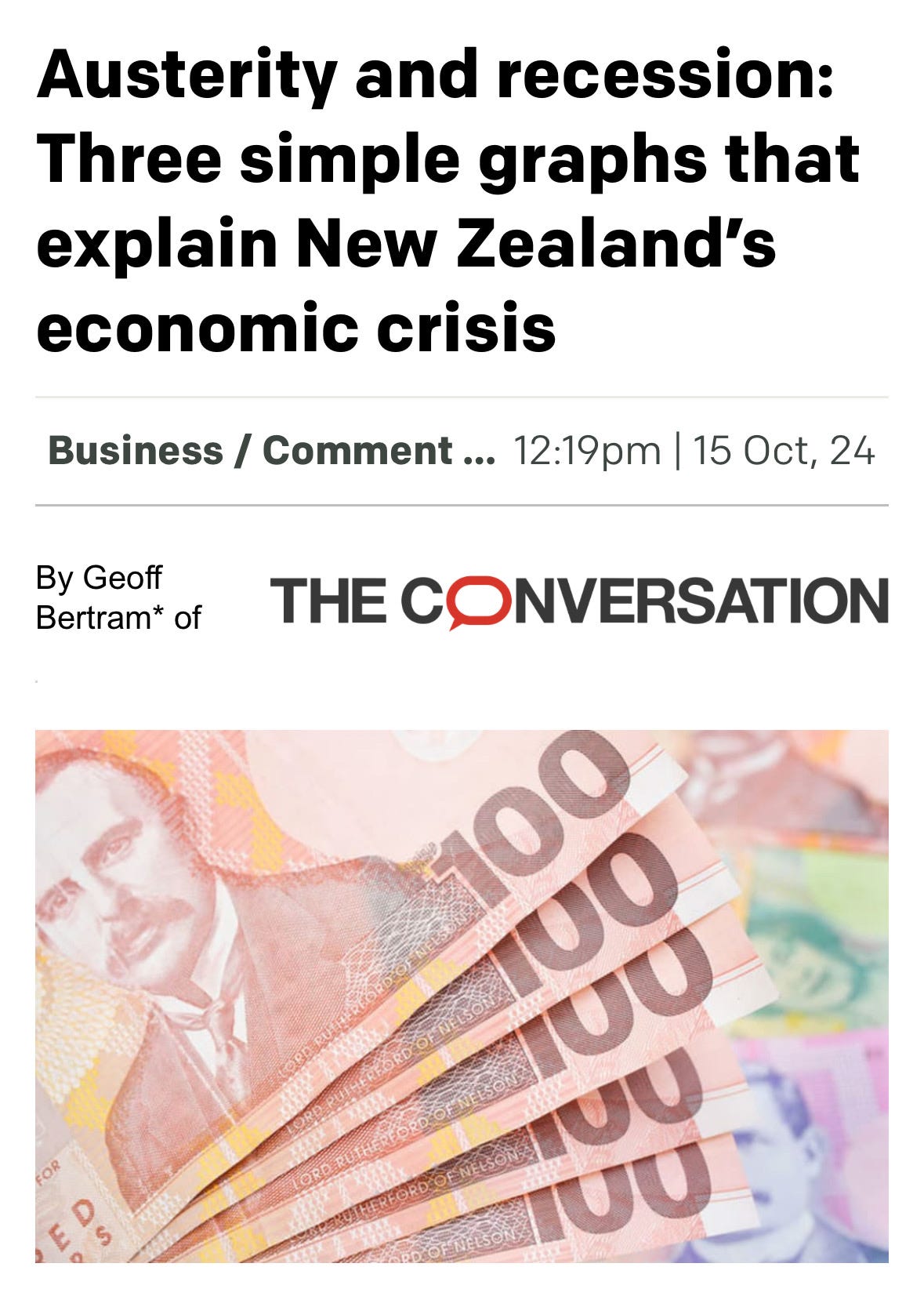
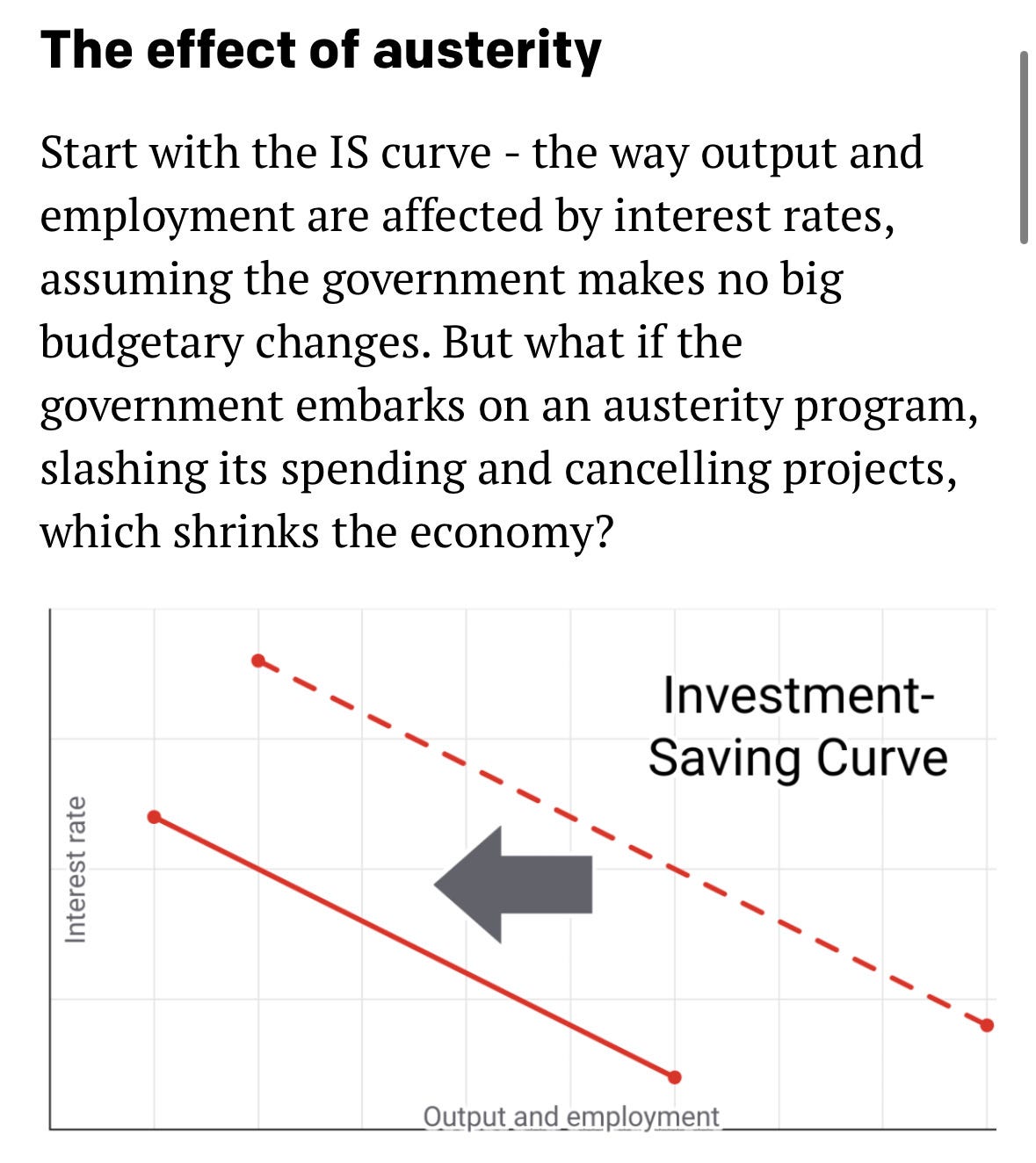
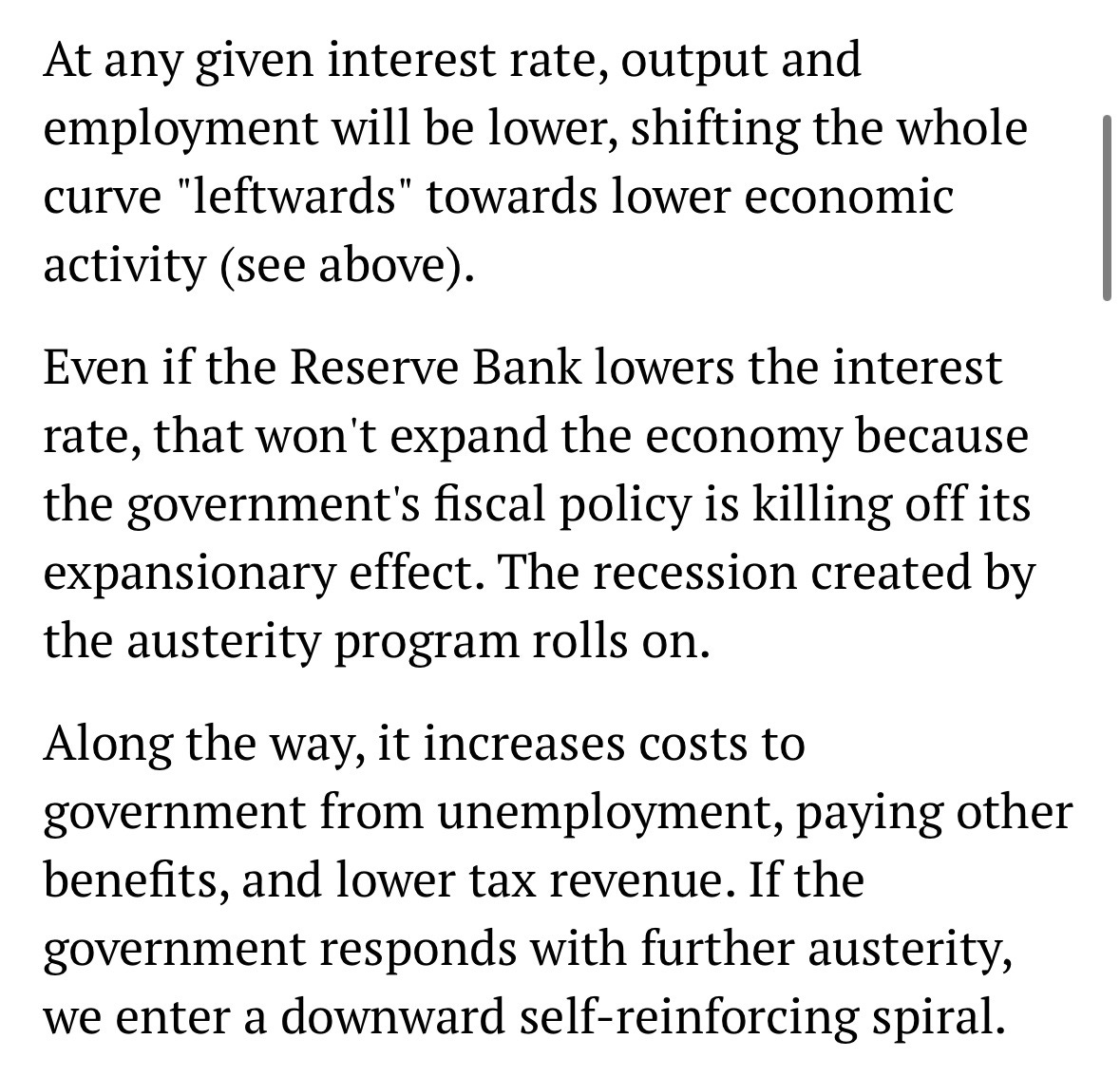
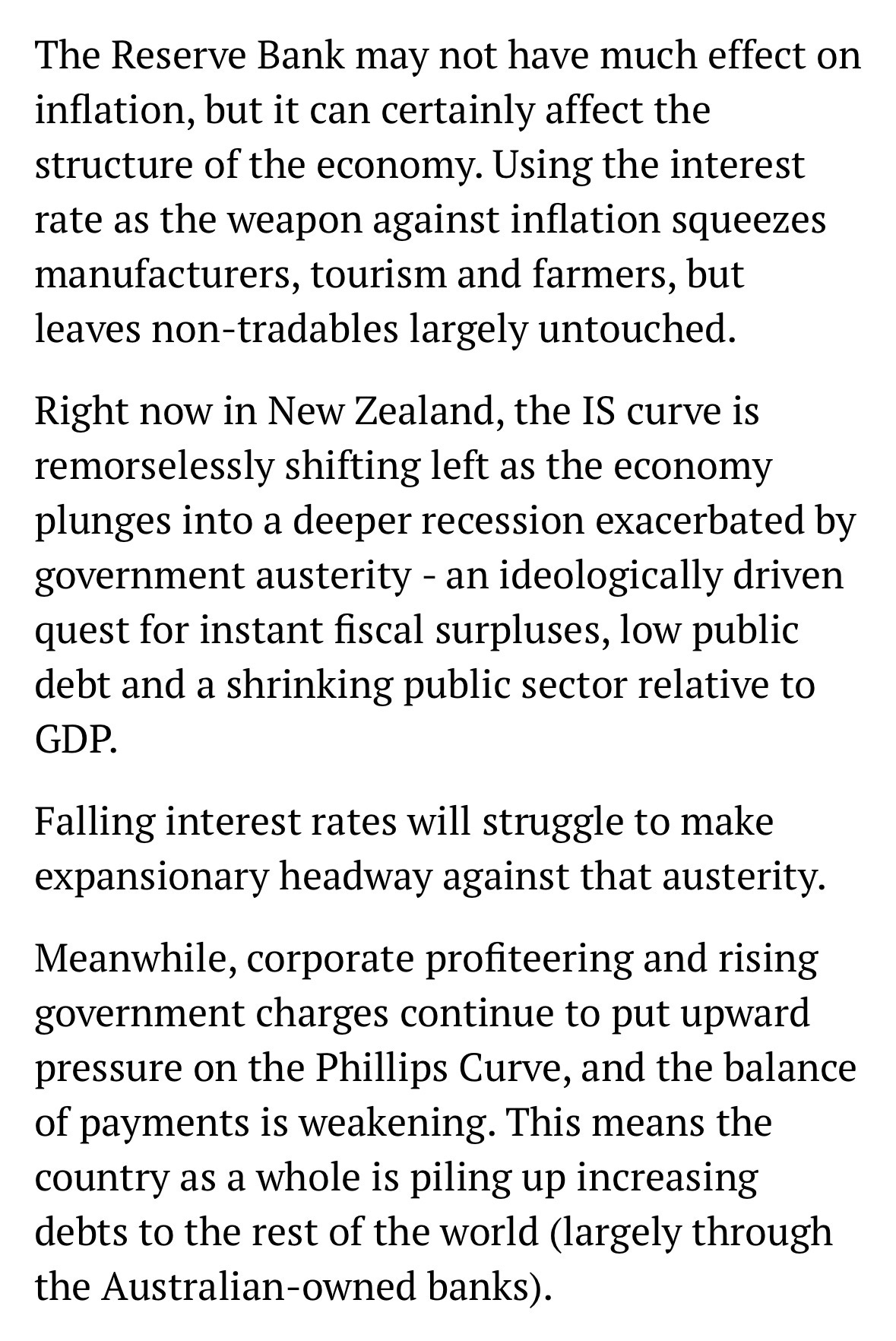


The Sam Vimes "Boots" theory of socioeconomic unfairness, often called simply the boots theory, is an economic theory that people in poverty have to buy cheap and subpar products that need to be replaced repeatedly, proving more expensive in the long run than more expensive items.
When you are in bed with the cobbler, this is what you want.
It applies in education, healthcare and infrastructure. They don't want you to pay once , they want you to pay again and again, often lying to hide this very basic fact, claiming inefficiency and unaffordability.
Think toll roads, school buildings, ferries, water, housing.
The Uk is a great example, housing, water, railways all basketcases all needing bailout at the end after vast wealth extraction.
Great work Sapphi. 👍😁